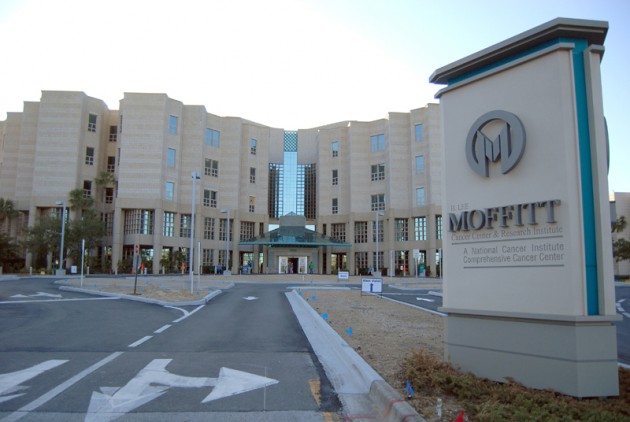Getting with the program

HPV, or human papillomavirus, is the most common STD in the U.S. At least 50 percent of sexually active people will acquire genital HPV infection during their lives, according to the Centers for Disease Control and Prevention.
Lifetime Cancer Screening and Prevention Center, part of the Moffitt Cancer Center, has come up with an innovative way of gathering more HPV study data: rewarding men who participate in a four-year HPV research study and sample testing with a cash incentive.
Participation in the study consists of 10 visits to Lifetime, most at intervals of about six months. By the end of the study, participants will have received $500 for their services.
HPV can lead to various forms of cancer. It can be easily detected in women through pap smears, but there is no diagnostic HPV test for men.
“This is a research testing center, not a place for diagnosis,” said Martha Abrahamsen, Lifetime researcher.
Abrahamsen and her co-workers have conducted the HPV research study at Moffitt and Lifetime since 2004. She said she is pleased with the results so far.
Participants have mostly come from USF, and have ranged from 18 to 70 years old, she said.
HPV is most common in 18- to 30-year-olds. Abrahamsen said about 100 to 150 men are typically tested for HPV each month at Lifetime.
One such participant is Ryan Serpentini, a business management major who has participated in the four-year HPV study since October and will make his third visit in April. He initially participated to raise money for his fraternity, and said he has had a good experience with Lifetime so far.
“You walk in, fill out the form, and you’re in and out in like a half-hour,” Serpentini said.
He characterized the visits as efficient and manageable and said he would definitely recommend participation to others.
Serpentini described the testing as painless. Samples are collected from the genitalia with a cotton-tipped Dacron swab, but researchers take no urethral samples,
Abrahamsen said.
Study participants are also tested for other STDs, including chlamydia and gonorrhea, and are asked to fill out general surveys and health questionnaires.
“All the guys we see, we want to use for research studies,” Abrahamsen said.
There is no cure for HPV. Though genital warts caused by HPV can be treated, the disease is not always visible to the naked eye, Abrahamsen said, noting, “The types of HPV you can get cancer from, you can’t see.”
Abrahamsen said she hopes that the $500 incentive will continue to attract new applicants and that new research will help better track HPV within the male population.
Men who are interested in taking part in the four-year HPV research study can contact Lifetime Cancer Screening and Prevention Center for more information at 813-745-6055.






